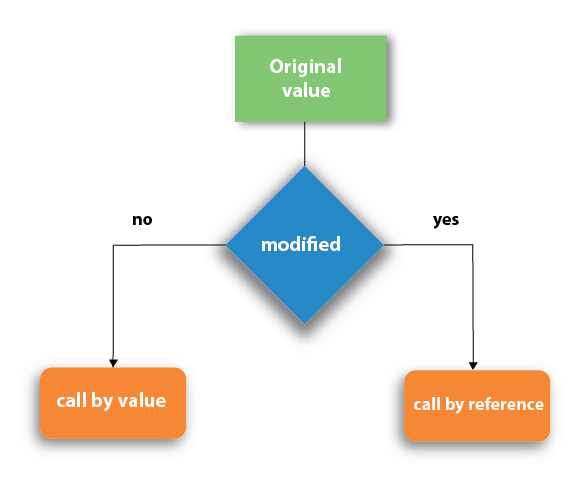C is a broadly useful, basic PC programming dialect, supporting organized programming, lexical variable extension and recursion, though a static type framework forestalls numerous unintended tasks. By plan, C gives constructs that delineate to regular machine directions, and along these lines, it has discovered enduring use in applications that had in the past been coded in low-level computing construct, including working frameworks, and in addition different application programming for PCs running from supercomputers to installed frameworks.
Based on Arguments there are two kinds of functions that are accessible in the C programming language. These functions are –
- With Argument
- Without Argument
On the off chance that a function takes any arguments, it must proclaim factors that acknowledge the qualities as arguments. These factors are known as the formal parameters of the function. There are two different ways to pass information or value to work in C language. These are called as call by value and call by reference. The details of which are mentioned as below-
- Call by Value – In call by value, a unique value cannot be modified or changed. When you passed an incentive to the function it is privately put away by the function parameter in the stack memory area. In the event that you change the estimation of a capacity parameter, it is changed for the current capacity just however it not change the estimation of a variable inside the guest strategy.
- Call by Reference – In call by reference, a unique value is adjusted or changed in light of the fact that one pass reference or address. In call by reference, an address of the value is passed in the function, so real and formal contentions have a similar location space. Henceforth, any esteem changed inside the capacity, is reflected inside and also outside the capacity.
The contrast between call by value and call by reference
Call by Value –
- This technique duplicates unique value into capacity as arguments.
- Modifications made inside the capacity is restricted to the function as it were. The estimations of the real parameters don’t vary by modifying the formal parameters.
- Genuine and formal arguments will be made in a various memory area
- A duplicate of the value is passed into the capacity
Call by reference –
- This technique copy address of arguments into capacity as an argument.
- Genuine and formal arguments will be made in the same memory area
- Changes made within the function approve outside of the function as well. The estimations of the real parameters do vary by modifying the formal parameters
Imperative focuses identified with Function
- The fundamental reason for the function is code reuse.
- From any function, one can summon (call) any other functions too.
- Compilation always takes place from top to bottom.
- Execution process always will begin from primary () and closures with principle () as it were.
- In usage when one is calling a capacity which is characterized later to keep away from the accumulation mistake one has to for forwarding announcement that is model is required.
- In function definition first line is called work revelation or capacity header.













